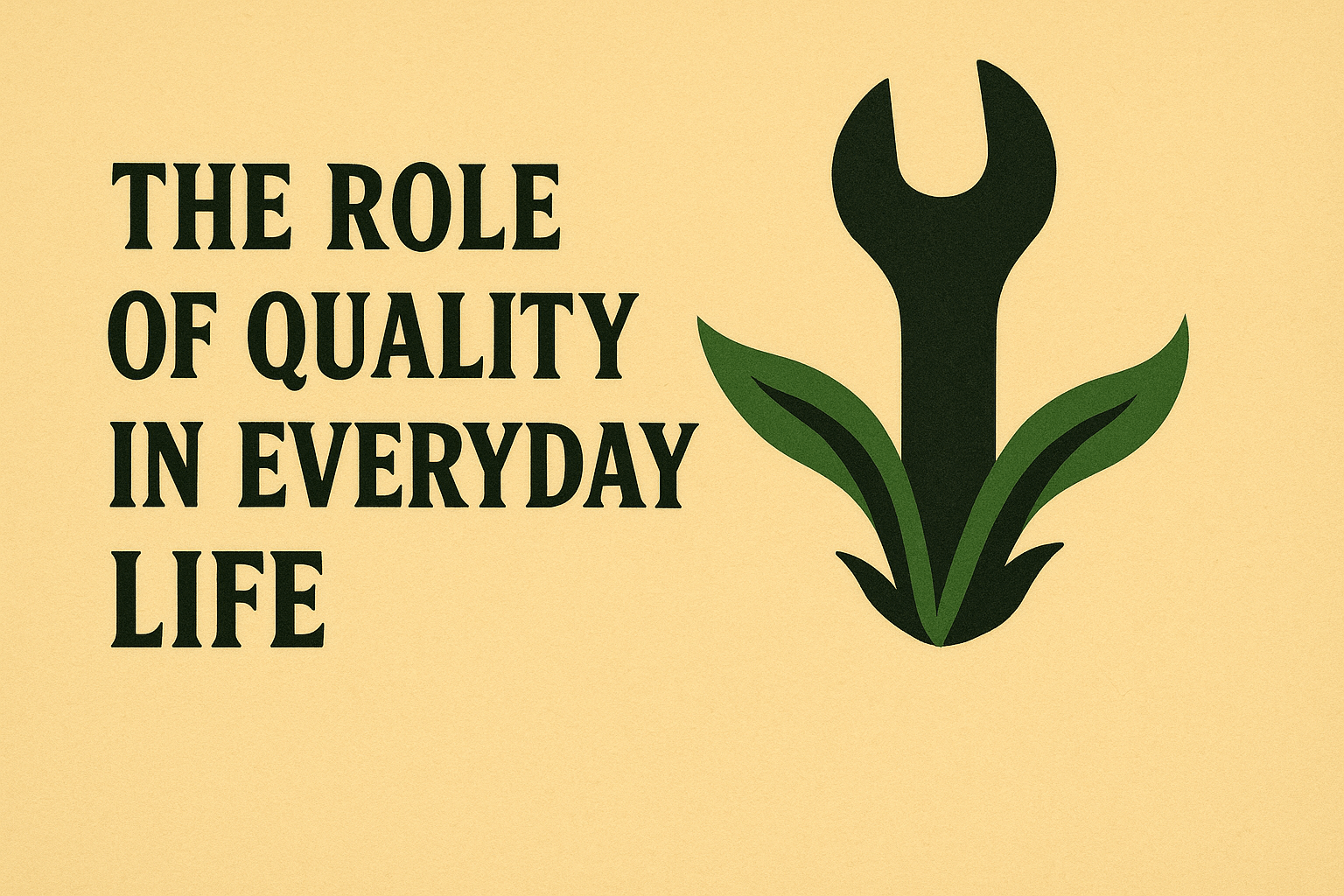This article could explore how Pirsig’s philosophy can be applied to improve daily life, focusing on the practical implications of valuing quality in work, relationships, and personal growth.
Robert M. Pirsig’s Metaphysics of Quality (MOQ), introduced in his seminal works Zen and the Art of Motorcycle Maintenance and Lila: An Inquiry into Morals, offers a transformative approach to understanding and enhancing our daily lives. By placing quality at the center of our existence, Pirsig provides a framework that can significantly impact how we approach work, relationships, and personal growth. This article explores the practical implications of valuing quality in everyday life and how Pirsig’s philosophy can lead to a more fulfilling and balanced existence.
Quality in Work
Pirsig’s philosophy emphasizes that quality should be the guiding principle in our professional lives. This means striving for excellence and integrity in everything we do, regardless of the nature of our work. Here’s how valuing quality can enhance our professional lives:
- Attention to Detail: By focusing on quality, we learn to pay attention to the finer details of our work. This meticulousness can lead to higher standards, fewer errors, and a greater sense of accomplishment. Whether it’s writing a report, crafting a product, or providing a service, attention to detail reflects a commitment to excellence.
- Pride in Craftsmanship: Taking pride in one’s work, as Pirsig illustrates through motorcycle maintenance, fosters a deeper connection to the task at hand. This sense of craftsmanship not only improves the final outcome but also enhances personal satisfaction and motivation.
- Continuous Improvement: Valuing quality encourages a mindset of continuous improvement. By regularly assessing and refining our work processes, we can achieve greater efficiency and innovation. This proactive approach helps us stay competitive and relevant in our respective fields.
- Work-Life Balance: Pirsig’s philosophy also implies that quality is not just about output but also about maintaining a healthy work-life balance. Ensuring that our work does not consume all our time and energy allows us to bring our best selves to our professional endeavors.
Quality in Relationships
The principles of quality can profoundly impact our relationships with others, fostering deeper and more meaningful connections. Here’s how:
- Active Listening: Valuing quality in relationships means genuinely listening to others, understanding their perspectives, and responding thoughtfully. Active listening demonstrates respect and empathy, strengthening interpersonal bonds.
- Meaningful Interactions: Rather than engaging in superficial interactions, focusing on quality encourages us to seek meaningful connections. This involves investing time and effort in relationships, being present, and showing genuine interest and care.
- Mutual Respect and Support: Quality relationships are built on mutual respect and support. By valuing the unique qualities of others and offering encouragement, we create a positive and nurturing environment that benefits everyone involved.
- Conflict Resolution: When quality is a priority, conflicts are addressed constructively. Instead of avoiding or escalating disputes, we aim to understand the underlying issues and work collaboratively towards a resolution that respects everyone’s needs and perspectives.
Quality in Personal Growth
Applying Pirsig’s philosophy to personal growth involves a commitment to self-improvement and a deeper understanding of one’s values and goals. Here are some ways to integrate quality into personal development:
- Mindfulness and Presence: Practicing mindfulness and being fully present in each moment enhances our appreciation of life’s experiences. This heightened awareness helps us identify areas for growth and fosters a deeper connection to ourselves and the world around us.
- Lifelong Learning: Embracing a mindset of lifelong learning aligns with the pursuit of quality. Continuously seeking new knowledge and skills not only enriches our lives but also keeps us adaptable and open to new opportunities.
- Setting Intentional Goals: Valuing quality involves setting meaningful and intentional goals that align with our core values. By focusing on what truly matters, we can direct our efforts towards achieving personal fulfillment and a sense of purpose.
- Self-Reflection: Regular self-reflection allows us to evaluate our progress, understand our strengths and weaknesses, and make necessary adjustments. This practice of introspection is key to maintaining a high standard of quality in our personal growth journey.
Practical Steps to Integrate Quality into Daily Life
- Prioritize Tasks: Focus on completing tasks that align with your values and bring the most significant impact. This prioritization ensures that you invest your time and energy in activities that matter most.
- Cultivate a Growth Mindset: Embrace challenges as opportunities for growth rather than obstacles. A growth mindset helps you stay resilient and motivated, continually striving for improvement.
- Simplify and Declutter: Simplifying your surroundings and routines can enhance the quality of your life by reducing stress and increasing focus. Decluttering both physical and mental spaces allows for greater clarity and productivity.
- Practice Gratitude: Regularly practicing gratitude can shift your focus towards the positive aspects of your life, enhancing your overall sense of quality and well-being.
- Engage in Creative Activities: Engaging in creative pursuits nurtures dynamic quality, encouraging innovation and self-expression. Whether it’s art, music, writing, or any other creative outlet, these activities enrich your life and foster personal growth.
Conclusion
Robert Pirsig’s Metaphysics of Quality offers a profound and practical philosophy for improving daily life. By prioritizing quality in our work, relationships, and personal growth, we can create a more balanced, fulfilling, and meaningful existence. Embracing Pirsig’s insights encourages us to look beyond superficial measures of success and focus on the intrinsic value of our actions and interactions. Ultimately, the pursuit of quality leads to a richer and more satisfying life, where every moment is infused with purpose and excellence.
